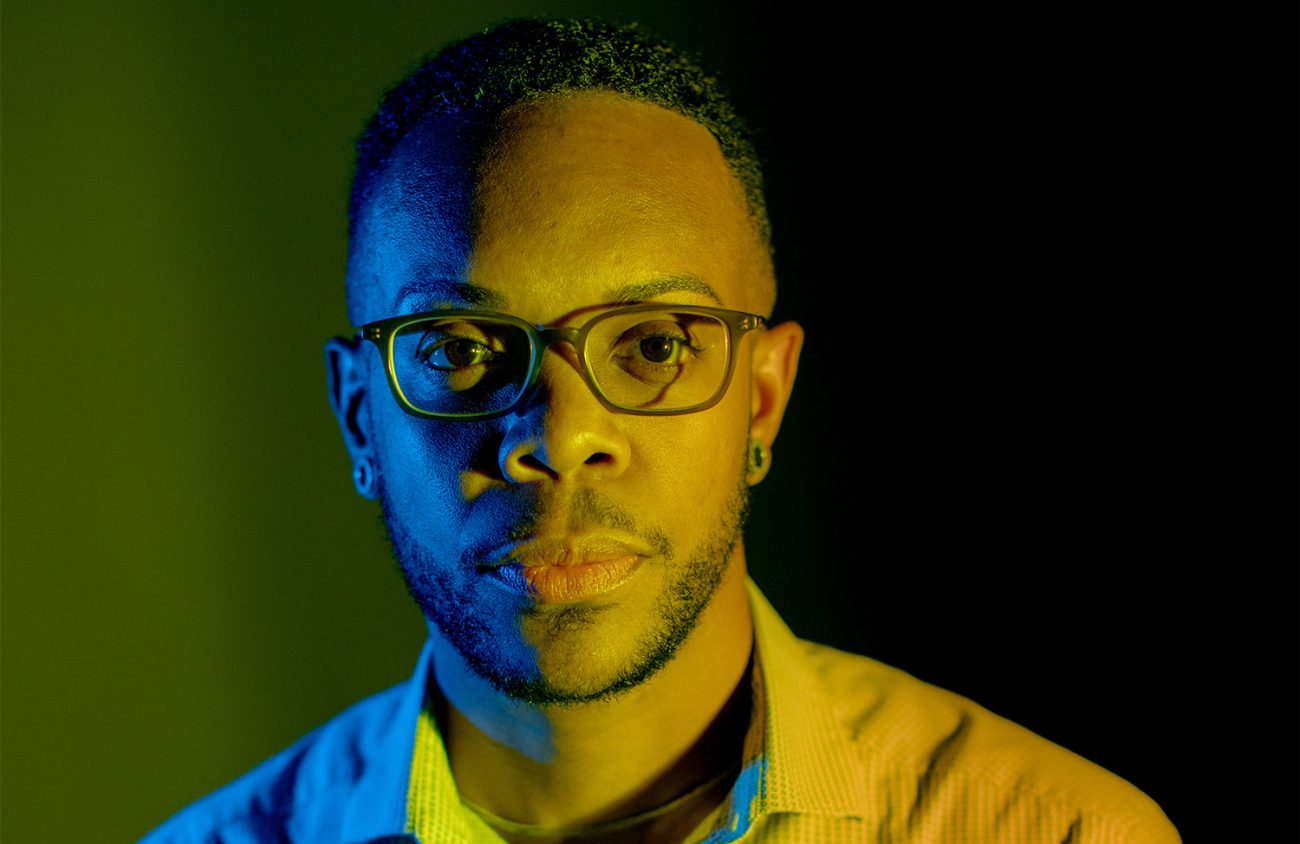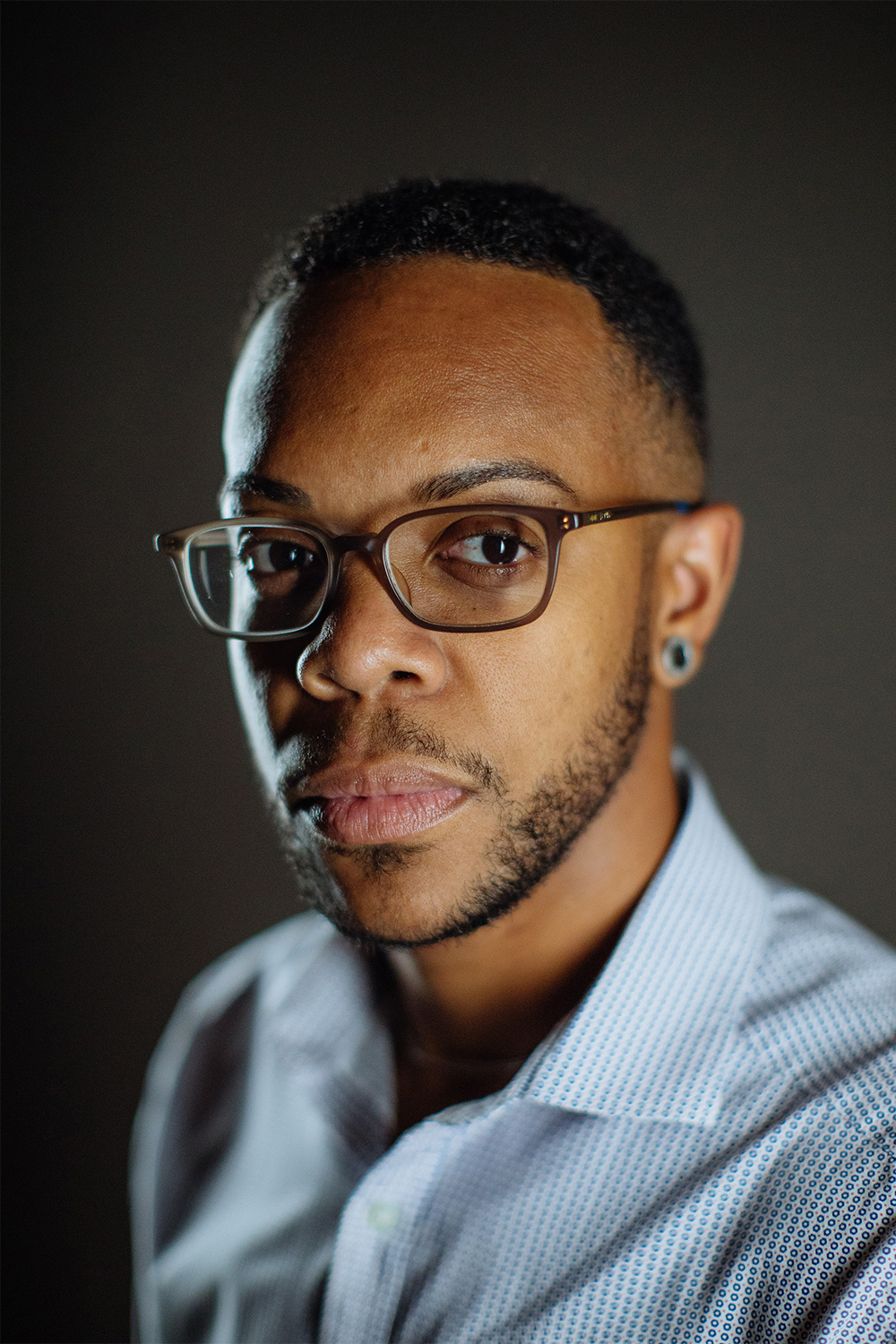Kyle Rodriguez-Hudson was named TransPonder’s new executive director on July 1. With the new role, he says he hopes to expand the organization’s outreach and to continue conversations about race beyond 2020’s Black Lives Matter protests and the March for Black Trans Lives.
TransPonder is a Eugene-area trans-led nonprofit that coordinates and provides support for Lane County’s trans and nonbinary community. It holds a number of meetings for trans community-building and support, curates lists of gender-affirming medical, mental health and faith-based resources and consults with outside groups about fostering gender-inclusive spaces.
Rodriguez-Hudson says he met TransPonder’s former interim executive director, Oblio Stroyman, during Trans Day of Remembrance in 2017. Stroyman told Rodriguez-Hudson about TransPonder and the services it provides. “I remember saying, ‘I’m liking the feel of this,’” Rodriguez-Hudson says.
Rodriguez-Hudson began to refer clients from his therapy practice to TransPonder for resources — and eventually got involved himself.
He started TransPonder’s queer and trans BIPOC discussion and support group after the murder of George Floyd in 2020. In the midst of BLM protests and a global pandemic, Rodriguez-Hudson says he noticed that people of color were taking on a lot while also dealing with anxiety, depression and isolation. “It was a place to allow folks who are queer, trans, POC with a safe space to be in,” he says.
“Within the Latinx and African American community, we’re programmed, unfortunately, to not talk about our feelings,” Rodriguez-Hudson says. “We all need to talk to someone.” He says that when BIPOC individuals seek out mental health support, they often struggle to find a therapist who understands their lived experience. Eighty-six percent of U.S. psychologists in 2015 were white, according to the American Psychological Association.
The queer community emphasizes chosen family, Rodriguez-Hudson says, which puts queer folks in positions where they can to talk with those who know what it’s like to live as an LGBTQ person. “But it’s also important to talk to them as a professional that can relate to you on the various intersectionalities,” he says, “and not coming in as a client having to teach that to your therapist.”
Beyond the QTBIPOC group, TransPonder holds regular support group meetings for trans and disabled people and the trans community at large. It also hosts a book club, a gender diverse yoga class and a recurring meeting for trans and gender-diverse people and allies to talk.
Rodriguez-Hudson says he wants to expand the area TransPonder covers beyond Lane County and along I-5 to make resources accessible to more people — especially to BIPOC in more rural communities. In his six years living in Oregon, he says he’s noticed that most queer people are sent to Portland when they try to access resources. Portland’s Oregon Science and Health University is currently home to the only two surgeons who specialize in gender-affirming procedures in the state of Oregon.
“When we look at specifically queer folks — and especially people of color who are queer — the resources are already limited to begin with,” Rodriguez-Hudson says. “To say, ‘Hey, go up to Portland,’ it’s a two-hour drive, bus, what have you. Do you have the financial means to get there? Do you have the resources?”
To help the trans community, TransPonder’s website features a directory of resources. Everyone listed on the website has experience working with and providing adequate care to trans people, Rodriguez-Hudson says. TransPonder also has a dedicated resource navigator who helps trans people connect with healthcare, insurance, social services, housing, mental health services and changing legal documentation.
Rodriguez-Hudson says he also wants to use his platform as TransPonder’s executive director to center the voices of people of color and ensure that conversations about BLM and trans rights don’t end with Derek Chauvin’s sentencing in June. 2021 has already seen over 30 trans and gender-nonconforming individuals in the U.S. — largely Black and Brown trans women — fatally shot or killed, according to the Human Rights Campaign.
“We shouldn’t try to sugarcoat anything,” Rodriguez-Hudson says. “I want people to talk about death and sadness because that is true. But I also want people to talk about the positive things that the queer community has done — primarily queer trans women. We wouldn’t be here without powerful queer trans women, and I feel like the world needs to hear that.”
Organizations often ask TransPonder for training on how to make their spaces more inclusive, he says, “but there’s no follow through.”
“For me, being at the helm of a predominantly white organization, it’s important for folks to understand that people of color, trans people of color, we all have voices,” he says. “If you want to work in building a safe space for folks to be in your space, then follow through with your statements.”
Rodriguez-Hudson will speak at Eugene’s Pride event on Aug. 14. For more information on TransPonder, visit Transponder.Community.

